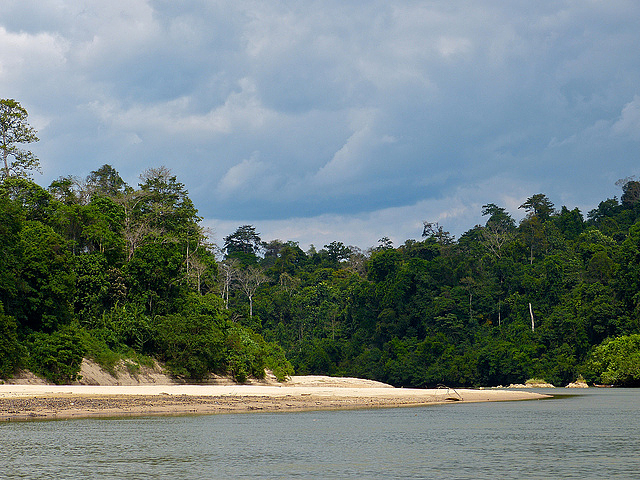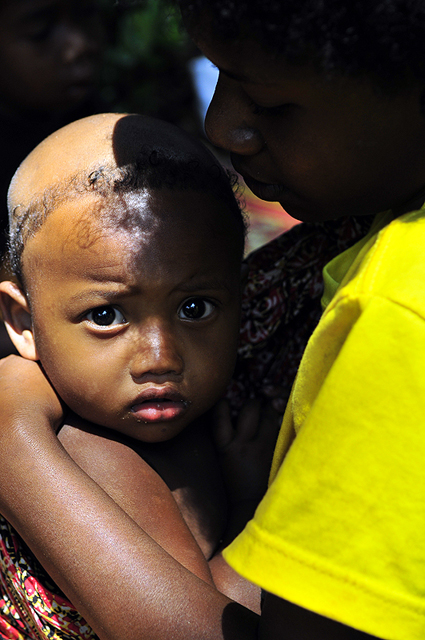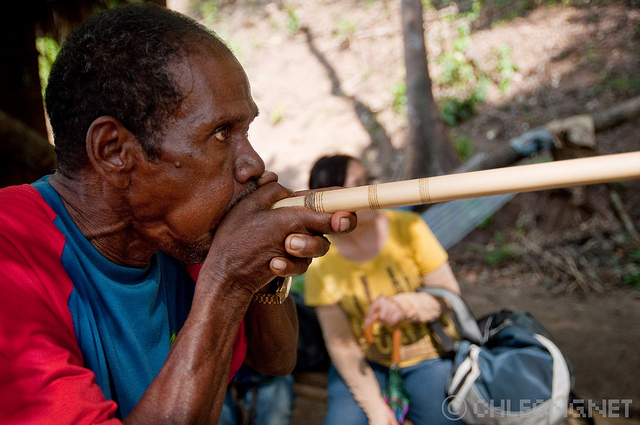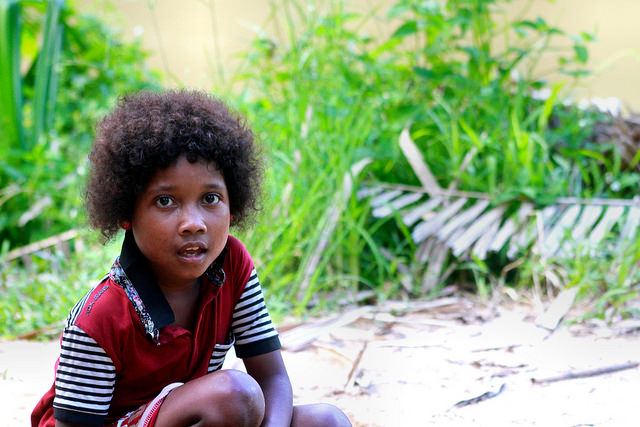Three different Malaysian news sources over the past month featured a story about gifts of solar-powered lighting for Batek villages that are off the electric grid.

In its report dated August 30, the Malaysian Insight, a news website, said that the Batek in Kampung Aur had received the electric lights on August 8 as a donation from several charities. The village is on the Tembeling river right at the edge of the Taman Negara National Park. The only motorized access to the outside world is via the river. The people in Aur spend a lot of their time in the forest hunting and gathering for their subsistence.
But continuing logging of the forests and the development of more plantations has forced at least some of the Batek to rely for income on craft works that they sell to tourists traveling along the river. They are also prioritizing schooling for their children. The new lights will help adults work on their crafts at night and they will give the children more time to do their homework.
Manderu, the headman of the village, told the reporter that the lighting may also help them develop a tourist business since many visitors would not feel comfortable without lights at night. He said that they have previously relied on oil lamps for nighttime lighting, but they can be dangerous since huts may burn down if they get knocked over.

Similar LED lights recharged by solar panels were installed last year in another village along the Tembeling, Kampung Dedari. That village has had an ongoing tourist business for several years. With the installation of their electric lighting, Kampung Dedari has built several huts for tourists to stay in, an initiative that has also been noted in the Malaysian press.
A news story in the New Straits Times on August 23 said that Batek Jungle Hut in Dedari consists of eight huts facing the river, all constructed out of tree branches and bamboo with roofs made of woven nipah leaves. The separate bathrooms and toilets have solar-powered facilities. The guests—four people can sleep in each hut for less than RM50 (US$12) per night—can sample the foods of the Batek people such as boiled tapioca and watch people demonstrate their traditional skills such as starting a fire without matches or using blowguns. An official in the Pahang office of the Tourism and Culture Ministry told the reporter that many of the tourists appear to enjoy their visits as they learn about the Batek language, culture and traditions.

Another story in the NST on September 16 related the experiences of a visitor to Kampung Aur to see the installation of the lighting fixtures. The journalist, Elena Koshy, writes romantically about the forest environment of the park—the “130-million-year-old virgin rainforest rises up intimidatingly, as wild and untamed as the animals that inhabit her domain”—but she does share some interesting information.
It becomes clear that she was part of the expedition that supplied the LED lamps and solar panels to Kampung Aur on August 8, though her personal experiences of the mission of the day dominate the report, starting with her first impressions of the muddy pathway up the river bank from the boats. The village at first seems to be deserted, though the villagers appear to be peering out at the visitors from their branch and thatch huts. The Batek gradually emerge and establish contacts with the visitors.

Ms. Koshy writes that the village tends to blend into the forest and can hardly be spotted from even a few feet away. The Batek thrive on food from the forest: yams and small animals they hunt with their blowpipes. They think of the forest as their true home. They do not symbolically defend themselves from the surrounding forest—they are part of it. They enjoy it for relief from the tropical heat.
Menderu, as the New Straits Times spells the name of the 56-year-old village headman, greets the visitors shyly and tells them that the villagers are pleased to be getting the new solar powered lamps, but they are shy of strangers. “They need some time to warm up,” he says, and he smiles. The volunteers who have arrived on the boats take several hours to erect in a clearing a large, makeshift table to hold the solar panels. The villagers slowly converge around the group of workers to watch the progress, and some of the men gradually start helping.
The sharing of work relaxes everyone. City folks struggling to fashion a table out of forest supplies and the Batek showing their skills with simple hand tools—parangs and small knives. The table is quickly erected with the help of the village people and the visitors install the solar panels to begin charging the lamps. Then the visitors leave, promising to return at dusk for the lighting of the lamps. That evening as expected, the new lamps light up the village and the Batek are pleased with the new technology that promises to help them change their lives.